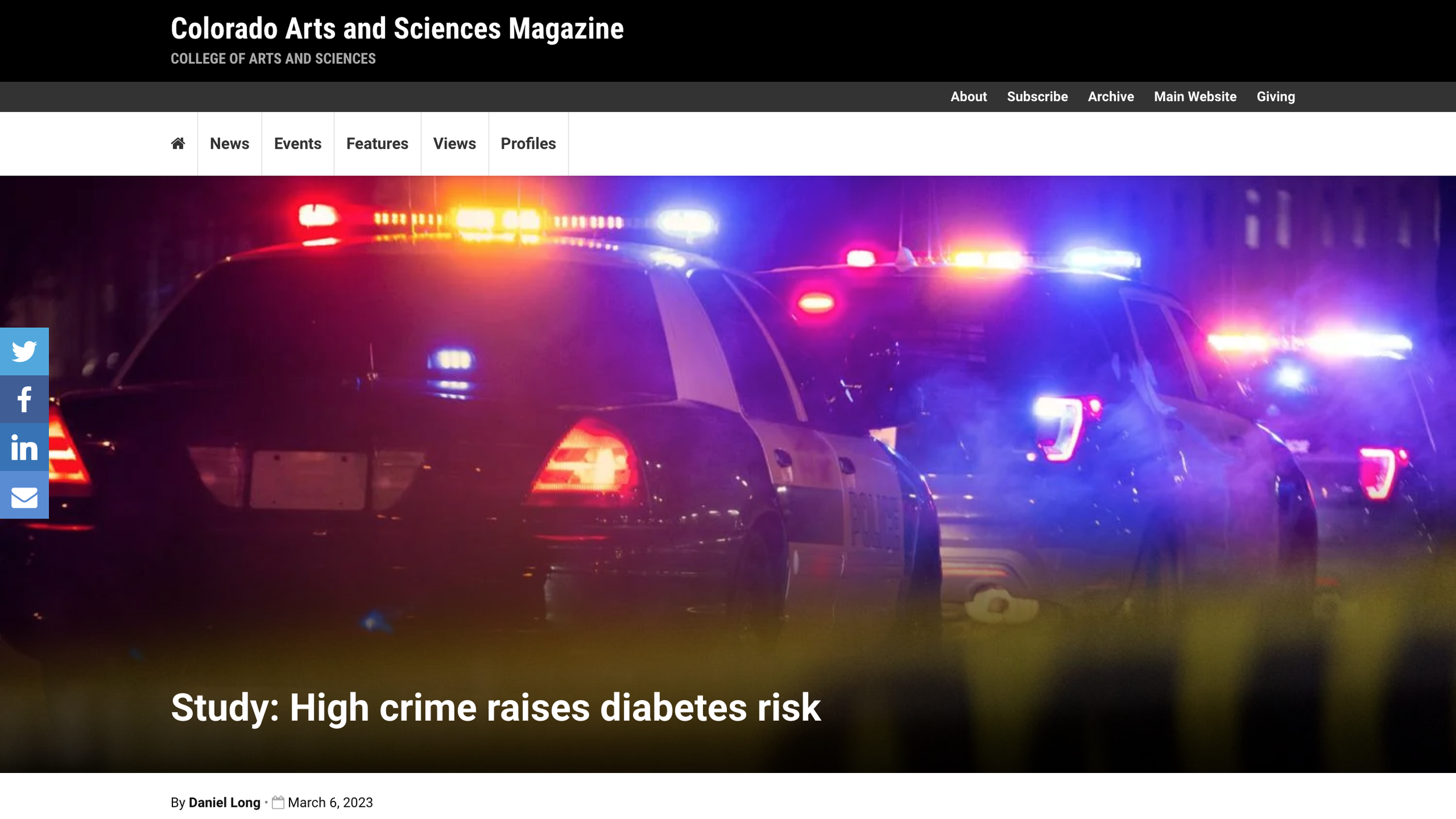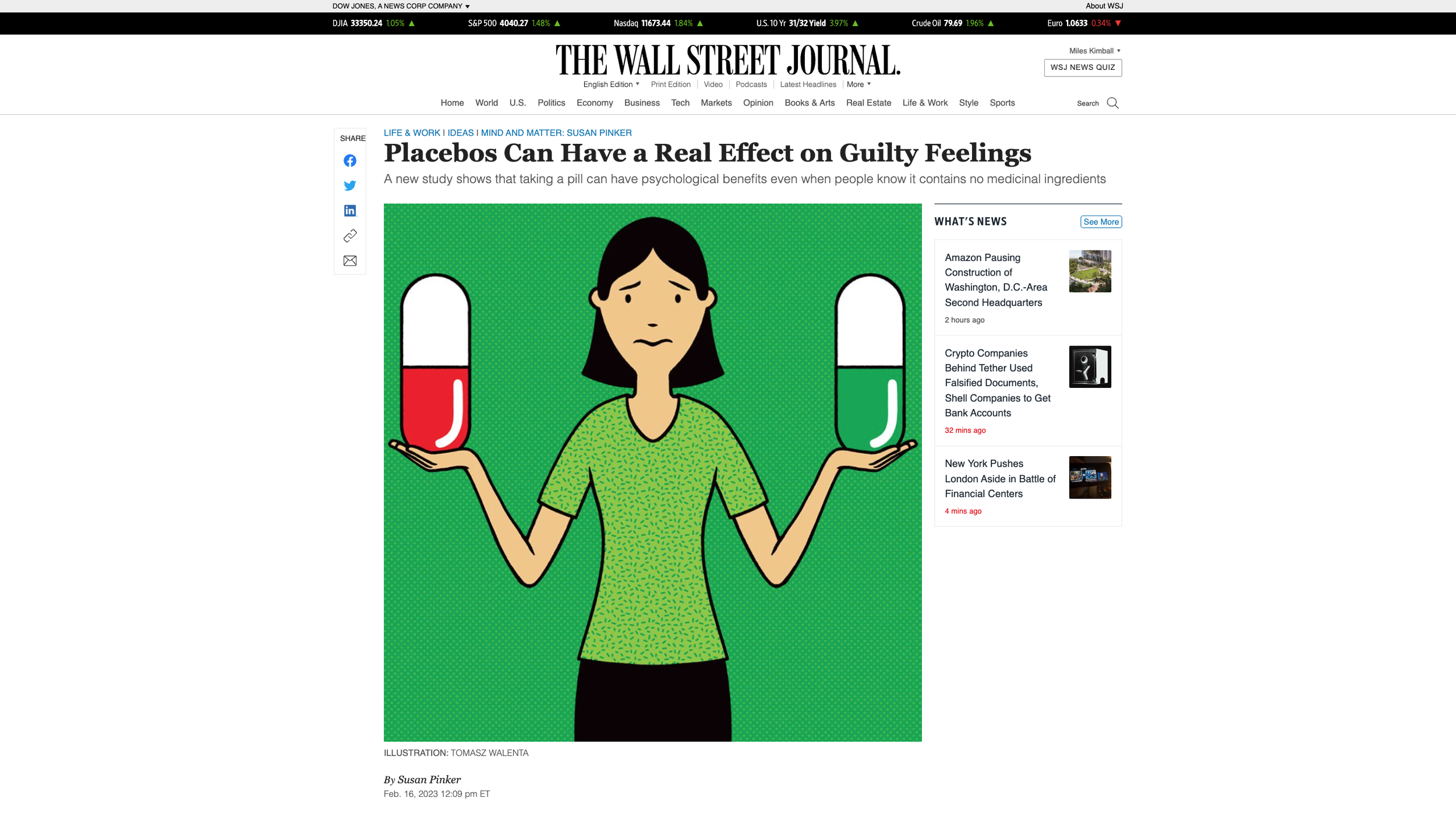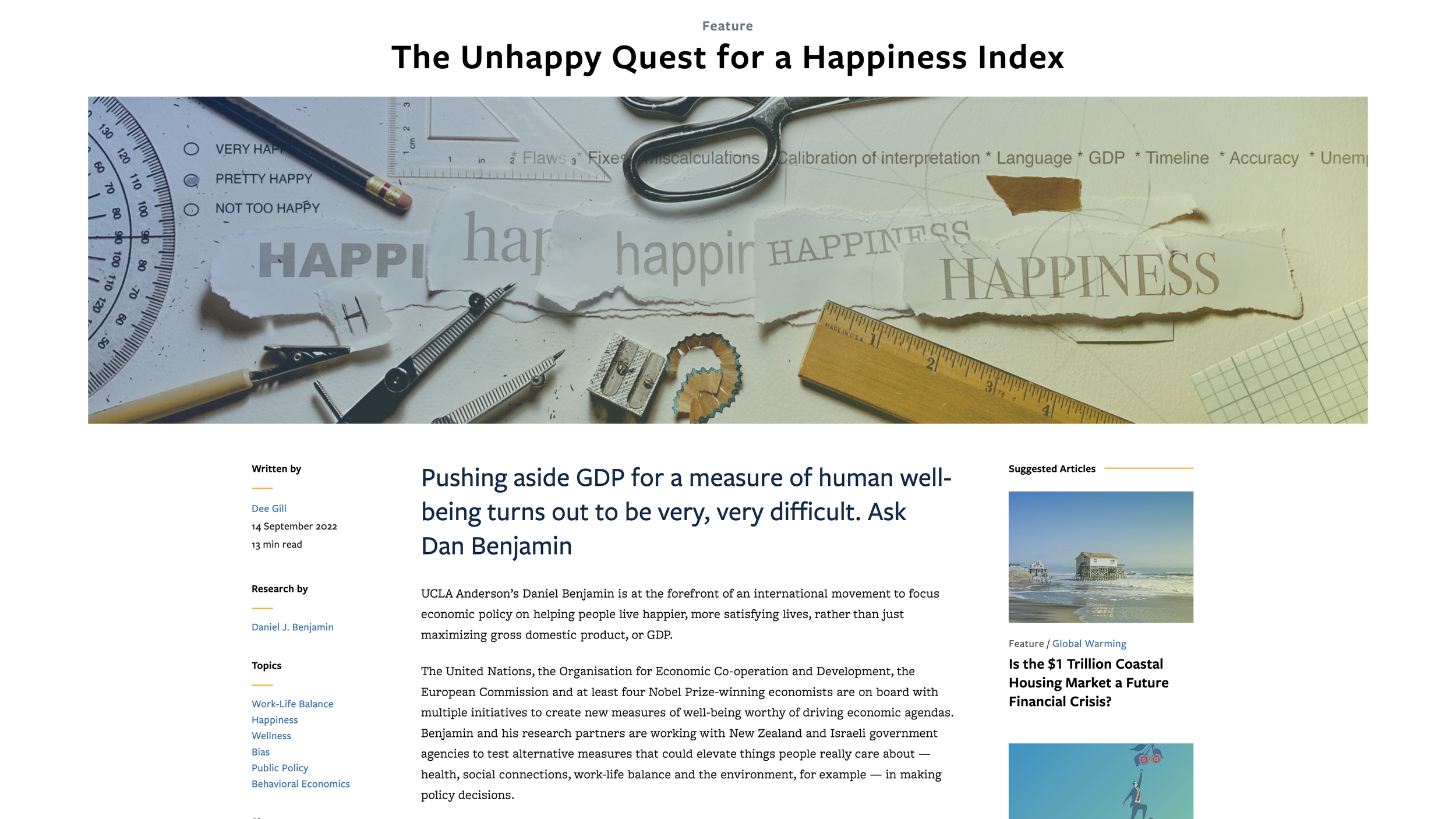Because Genes of a Child are Random Given the Genes of the Parents, It is a Lot Easier to Tell If Genes Cause Diabetes than to Tell If Crime Causes Diabetes
Note the title of the article above: high crime raises diabetes. My University of Colorado Boulder colleague Jason Boardman was more careful in his interpretation than his publicist. What the study actually shows is that genes associated with diabetes overall cause diabetes for people who live in high crime areas, but don’t clearly cause diabetes for people who don’t live in high crime areas.
Except for the issue of whether it is one’s own genes causing something or the corresponding genes in one’s parents (or less likely the same genes in one’s other relatives) causing something, the randomization of genes at conception makes it reasonably clear that when genes are correlated with something that the genes are causing that. In the future, when we have data with genes for father, mother and child, with the focus on what happens to the child, the evidence for genetic causes will be as strong as evidence from randomized controlled trials.
Of course, genes interact with the environment: they have different effects in different contexts. The causal chain from genes to outcomes that social scientists are interested in is typically a long one, so all kinds of things along the way modify what the ultimate effect of the genes is. Jason Boardman has very interesting evidence that genes that on average cause diabetes are doing most of their work by causing diabetes among people who live in high crime areas.
But this is NOT evidence that high crime causes diabetes. It is not even evidence that high crime causes diabetes among those who have a genetic vulnerability for high crime to cause diabetes. High crime might cause diabetes among those with a genetic vulnerability for such an effect; stress could be a causal pathway. But it is just as possible that other factors that tend to be associated with high crime in an area cause diabetes among those with a genetic vulnerability to such an effect. For example, places with high crime are often food deserts, in which it is much easier to find junk food than to find healthy food (such as nonstarchy vegetables—one of the few categories almost everyone agrees is healthy). And so the evidence may be showing that food deserts cause diabetes among those who are genetically vulnerable to such an effect.
There is an interesting possibility in which high crime could cause diabetes among those genetically vulnerable, not through stress but because high crime causes food deserts as storekeepers avoid high crime areas, and food deserts in turn cause diabetes. That is, even when it is fully legitimate to say that high crime causes diabetes among those genetically vulnerable, it might not be the causal chain that most easily comes to mind when one says that.
When looking for remedies, it matters what the causal chain is. If food deserts are an important part of the causal chain, the remedies one would look for would be different than if stress is the key part of the causal chain. So getting statistical interpretations right matters.
As a caveat, let me say that my discussion of statistical interpretation here is based only on information in the news article. The academic paper might have good counterarguments to the possibilities I raise. But if so, the journalist should have emphasized those counterarguments, since they seem crucial to backing up the title of the piece.
Gut Microbes Fuel the Production of Regulatory T-Cells →
Evidence continues to mount that the gut microbiome mediates many important physiological functions. See the article linked above in this post’s title, for one example. In turn, two things are known to mess up the gut microbiome: antibiotics—which therefore should be used sparingly, only when really needed—and eating sugar (which can also be described as eating processed food, since sugar and processed food are so highly correlated).
The bottom line is that many things that otherwise wouldn’t sound like possible mechanisms are possible when the gut microbiome is part of the causal pathway. Watch out!
Placebos Can Work Even When People Know They Are Placebos
The “placebo effect” is the psychological effect of fake pills or other treatments that seem at first glance like they shouldn’t do much of anything. The placebo effect is quite important statistically, as an alternate pathway of effect that doesn’t depend on the chemical composition of a drug or what seem like the substantive elements in another type of treatment.
For practical purposes, the reason the placebo effect is so important is that it shows what curative effect one can get without the side effects that many other treatments have. Why use a real pill if it is no better than a fake pill, and has worse side effects or is more expensive than a fake pill? The same goes for other treatments that have side effects worse than a corresponding placebo treatment.
However, placebos as usually done involve deception, and deception has bad side effects. So it is useful to know about evidence that placebos can work even when they are above board. In a study led by Basel University Clinical Psyche PhD student Dilan Sezer, experimental subjects were first asked to write about an incident that made them feel guilty. Then, in Susan Pinker’s words in her February 16, 2023 Wall Street Journal article “Placebos Can Have a Real Effect on Guilty Feelings,”
… participants were randomly assigned to one of three groups. The first was given a “deceptive” placebo: It contained no medicinal ingredients, but participants were told it contained herbs and essential oils that had been “shown to reduce guilt feelings.” The second group was given an “open” placebo and were told that it “does not contain any medicinal ingredients.” The third was a control group that received no intervention at all.
… Both placebo groups showed a significant drop in guilt compared to those in the no-treatment control group. What’s more, '“the difference between placebo groups was statistically indistinguishable,” …
The brain has a big effect on the rest of the body through many channels, most of them not fully conscious. Let’s not assume that deception is needed for a given effect until that is proven.
My Grandfather Spencer W. Kimball's Journals are Now Available Online →
My grandfather, Spencer W. Kimball, was the head of the Mormon Church from 1973 to 1985. His journals are now available online (though with some redaction). My Dad, Edward L. Kimball, wrote two volumes of biography of my grandfather (the first coauthored with my cousin Andrew Kimball) and believed in openness for historical documents.
Andrew Budson and Elizabeth Kensinger's Memory Tips →
It’s disappointing that there are so few of the insights in Make It Stick here (see “The Most Effective Memory Methods are Difficult—and That's Why They Work), but this is a useful article for a complementary set of memory tips.
Pushing Aside GDP for a Measure of Human Well-Being Turns Out to be Very, Very Difficult. Ask Dan Benjamin →
This is about my research with Dan Benjamin, Kristen Cooper, Ori Heffetz and Jiannan Zhou.
Ori Heffetz: Measuring 'The Good Life—Alternative Metrics for National Wellbeing →
Ori is talking about work I am a coauthor on.




